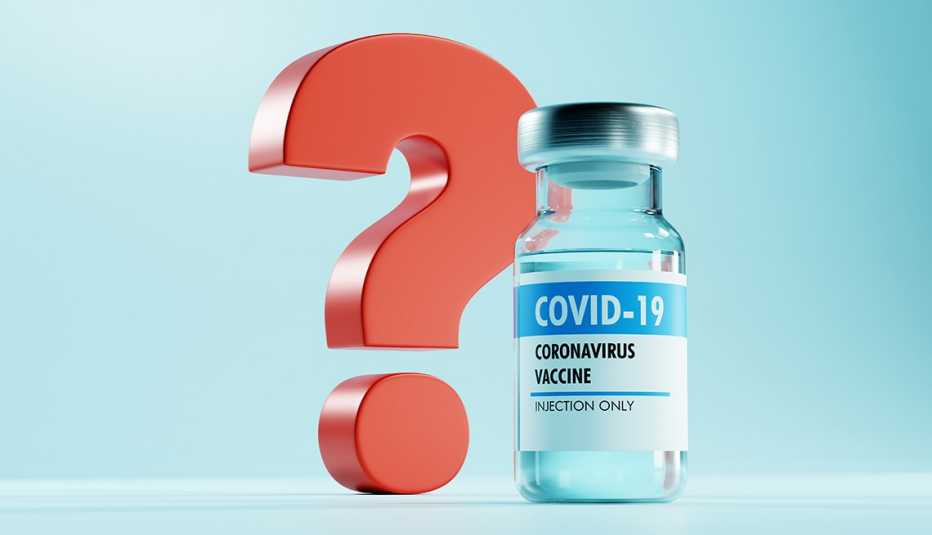Staying Fit


Since the arrival of the coronavirus vaccines in late 2020, more than 270 million Americans have rolled up their sleeves. Still, a significant share of the U.S. population has skipped the shots that provide protection against a disease that has killed more than 1.1 million people nationally.
A big reason: false information.
A 2021 report from KFF (also known as the Kaiser Family Foundation) found that nearly 80 percent of adults either believe or are unsure about at least one of eight false statements about the COVID-19 pandemic or vaccines. An earlier poll from KFF found that about 80 percent of adults who didn’t want the vaccine believed or were unsure of at least one prevailing COVID-19 vaccine myth.


AARP Membership— $12 for your first year when you sign up for Automatic Renewal
Get instant access to members-only products and hundreds of discounts, a free second membership, and a subscription to AARP the Magazine.
“Sadly, we’ve seen, again and again and again, misinformation lead to bad health outcomes,” U.S. Surgeon General Vivek Murthy said during an AARP Tele-Town Hall on the topic.
A 2022 article published in JAMA Health Forum estimates that as many as 12 million Americans may have forgone COVID vaccination because of misinformation. “I think misinformation was literally costing people their lives,” Murthy said.
Here are some common coronavirus vaccine myths and the truth behind each one.
Myth 1: The vaccines were developed too quickly to be trusted.
It’s true that the COVID-19 vaccines arrived in record time, but the steps that were hurried “were essentially the paperwork,” Andrew Bradley, M.D., a vaccine expert and professor at the Mayo Clinic, explained in a media briefing. All of the vaccines available were tested in tens of thousands of people in clinical trials and rigorously evaluated for their safety and effectiveness.
Scientists had a bit of a leg up from the beginning, which helped to accelerate the process. The virus that causes COVID-19 is related to other coronaviruses that have been under the microscope for years, including those that cause severe acute respiratory syndrome (SARS) and Middle East respiratory syndrome (MERS). “The knowledge gained through past research on coronavirus vaccines helped to accelerate the initial development of the current COVID-19 vaccines,” the Centers for Disease Control and Prevention (CDC) said.
Investing in early manufacturing and distribution also got shots in arms faster than usual. Although two of the vaccines (Pfizer’s and Moderna’s) are a new type, called mRNA (messenger ribonucleic acid), researchers have studied the technology for decades across a range of diseases, including flu, Zika and rabies — even cancer. This type of vaccine delivers a set of instructions to the cells and teaches them to make a protein that produces an immune response to the virus.
Myth 2: The vaccines will alter your DNA.
None of the vaccines interact with or alter a person’s genetic material, known as DNA (deoxyribonucleic acid), the CDC confirms. The vaccines help the cells build protection against a coronavirus infection, but the vaccine material never enters the nucleus of the cell where the DNA lives.
When it comes to the mRNA vaccines, after the cell is done using the instructions delivered, it breaks down and gets rid of the mRNA. And the genetic material delivered by the viral vector (used in the Johnson & Johnson vaccine) does not integrate into a person’s DNA, the CDC says.
Myth 3: If you’ve had COVID-19, you don’t need to get vaccinated.
Even if you’ve had COVID-19, experts recommend getting vaccinated and staying up to date with boosters.




































































More on Coronavirus
What the End of the COVID Emergencies Means
It will affect how many people access and pay for tests and treatments
What to Know About the Coronavirus Vaccines
Questions continue as millions of Americans get immunized
What You Need to Know About the Coronavirus
The latest news on COVID-19 and answers to frequently asked questions